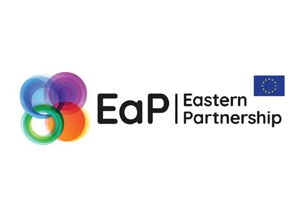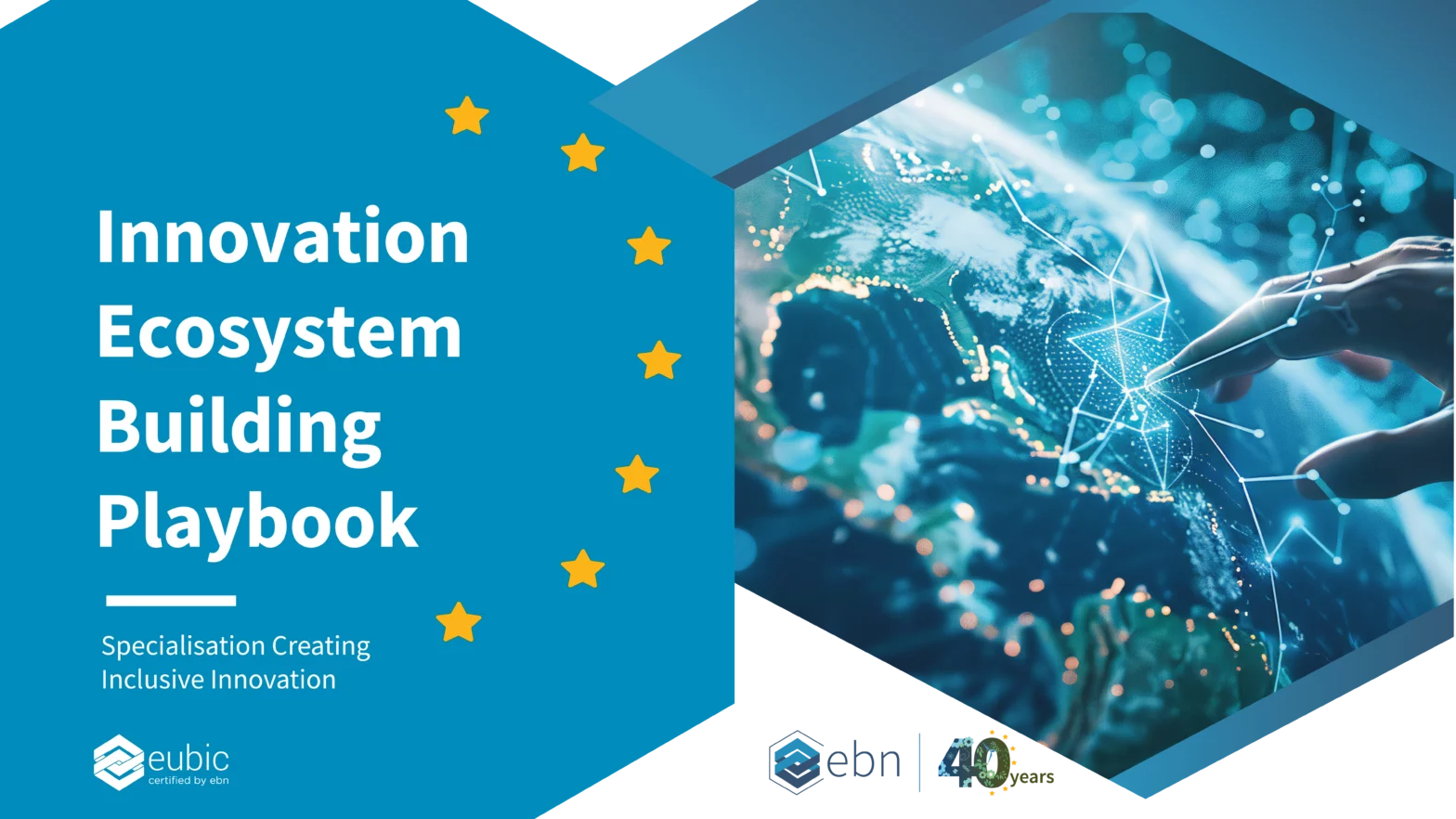Innovation Ecosystem Building in Eastern Partnership (EaP) countries

The coronavirus pandemic has led to a rapid rethink of our working lives and how we connect to others. For Europe’s innovation ecosystems, it also brought the opportunity to reflect on the role of innovators and entrepreneurs. How do they drive technological change, economic growth, job creation, and ultimately economic wellbeing?
The economic downturn resulting from the coronavirus outbreak is likely to last months (or years). The World Bank suggests that in some regions full recovery will not be achieved until 2025 or beyond. With this background, governments could best focus on innovation and entrepreneurship and create environments where startups and SMEs thrive.
Good practices
The EU4Digital ICT Innovation second networking event held in October shed light on the importance of connecting and stimulating integrated ecosystems for innovation. It brought together more than 80 participants from around 55 organisations (representatives of BAs/VCs, ministries, agencies, EU Delegations, and other ecosystem actors). EBN’s President and Chief Strategy Officer at JIC (South Moravian Innovation Centre) David Uhlí? and Luca Maini (EBN Certification & Impact Manager) presented the EBN network and its services, and discussed opportunities for cooperation with representatives of Eastern partner countries.
Innovation Ecosystem building in EaP countries
The EU Eastern Partnership (EaP) initiative, launched in 2009 by the European Commission (EEAS), is a joint initiative involving the EU, its Member States and six Eastern European partner countries (Armenia, Azerbaijan, Belarus, Georgia, Republic of Moldova and Ukraine). It aims to bring Eastern European countries closer to the EU by providing a forum for dialogue and exchange. The EaP includes activities which seek to closer cooperation on research and innovation with the EU and Eastern partner countries. In particular, the EU4Digital Initiative aims to extend the European Union’s Digital Single Market to the Eastern Partner states, developing the potential of the digital economy and society, in order to bring economic growth, generate more jobs, improve people’s lives and help businesses. The EU4Digital Facility supports reforms and actions to favour the development of ICT research, start-ups & innovation ecosystems across the Eastern Partnership region, drawing from EU experience and best practices.
All EaP countries have a long-held tradition of scientific excellence yet face a dramatic decrease in research and innovation activities since the early 90s. In recent years, ambitious national strategies to modernise and boost their innovation ecosystems result in the emergence of many business support organisations (BSO) (e.g. technology parks, business innovation centres and incubators). Simultaneously these actions stimulate reforms in the venture capital market, access to funding and intellectual property rights (IPR) protection. Such reforms have pushed towards more applied research with a strong focus on innovation and market-oriented results.
Now that EaP region is becoming a source of high-quality startups and entrepreneurs, policymakers see the effect of the policy interventions. However, further actions need to be taken. “Business support organisations are unevenly distributed across the countries and mostly concentrated in the capital cities” says Anna Pobol, the EU4Digital ICT Innovation stream leader and moderator of the event. “National and regional authorities should promote the establishment of new, contemporary forms of business support organisations (i.e. fablabs, mobilisers, accelerators, innovation hubs, innovation cluster organisations) not only in big cities, but also covering remote regions as a way to boost their attractiveness to retain talent and foster growth”.
Following the EU best practices, the support intermediaries in EaP countries could specialise on industries or thematic expertise, which makes their services better tailored to the specific startups’ and SMEs’ needs. “The quality of business support services needs to be further strengthened through capacity building activities for business support organisations”. The capacity building activities could include training of BSO staff members, peer exchange events, and better integration into global networks, Pobol says. Internationalisation of incubation and acceleration programmes, transfer and localisation of service packages and knowledge toolkits from EU BSOs as well as equipping the demonstration and testing facilities would significantly strengthen the capacity of BSOs in EaP region to bring up resilient startups and scaleups and enable better conditions for people to find their place in the changing labour market.
Figure 1 – Weakest areas of ICT innovation exosystem in EaP countries (ICT INNOVATION AND START-UP ECOSYSTEMS STUDY REPORT, 2018)
On the role for existing BSOs Pobol concludes, “many new services need to be introduced to address startups needs across the lifecycle stages, increasing the capacity of BSOs to help entrepreneurs improve their processes, products and services through the use of digital technologies” As similar concern also echoes in the ICT Innovation and Start-Up Ecosystems study conducted in the EaP countries, coordinated by Sander van der Molen and Anna Pobol.
As a pan-European, global community of people that use innovative business as a driver for regional economic, social and sustainable development, EBN is engaged in support actions for EaP countries. Mainly we seek to build capacity and deeply embed BSOs in their regional innovation ecosystems. Support is provided according to the specific needs of the ecosystem, and includes skills building activities and the promotion of the official EU|BIC Certificate – the benchmarking tool to measure the organisation’s performance and its impact on their regions. It is uniquely granted by EBN to mission-aligned organisations as the only certification of quality recognised by the European Commission.
Case story: Certified Business Innovation Centres in Ukraine
A practical example of establishing EU|BIC centres has been recently tested in Ukraine. In recent years, the Government of Ukraine launched an ambitious reform programme to accelerate economic growth and improve the livelihoods of its citizens. Today, the startup ecosystem is vibrant, but Ukrainian entrepreneurs have expressed the need to access high-quality mentorship and support.
To address this gap, EBN and Ukraine’s SME Development Office recently partnered in building a detailed programme to launch and develop EU|BICs in Ukraine. The collaboration benefits from EBN’s previous experience in 2010, where three Regional Centres of State Agency of Ukraine for Investment and Development (in Lutsk, Kyiv and Kharkiv) became joined the EBN network. As associate members of EBN they obtained technical support for implementing EU|BIC standards in Ukraine. Despite the opportunities and numerous initiatives implemented to develop BSOs, the centres encountered critical challenges throughout the years, resulting in the liquidation of the Agency and Regional Centres in 2015.
“There are still some main obstacles that hinder the sustainability of Ukrainian BSOs: non-existent monitoring and impact assessment frameworks, low awareness-raising, branding activities with entrepreneurs, and lack of networking among the diverse and existing support organisations” says Inna Petrenko, adviser at SMEDO. “The Ukrainian experience demonstrates that in order to be viable and effectively help entrepreneurs, innovation centres need to have a market-driven approach, provide high-quality services and create synergies in the ecosystem”.
Ukraine is currently considering the establishment of a wide national network of 24 EU|BICs and included the programme in the Government Priority Action Plan of Economic Recovery 2020-2022. “We consider this programme as a Key Action to the EU4Digital Initiative as well as priority for the recovery plan as the implementation of the proposed initiative will allow to form a system of comprehensive support for ICT innovation and digitalization of SMEs, providing access to knowledge, markets, infrastructure and sources of funding, which will contribute to the achievement of target quantitative and qualitative







